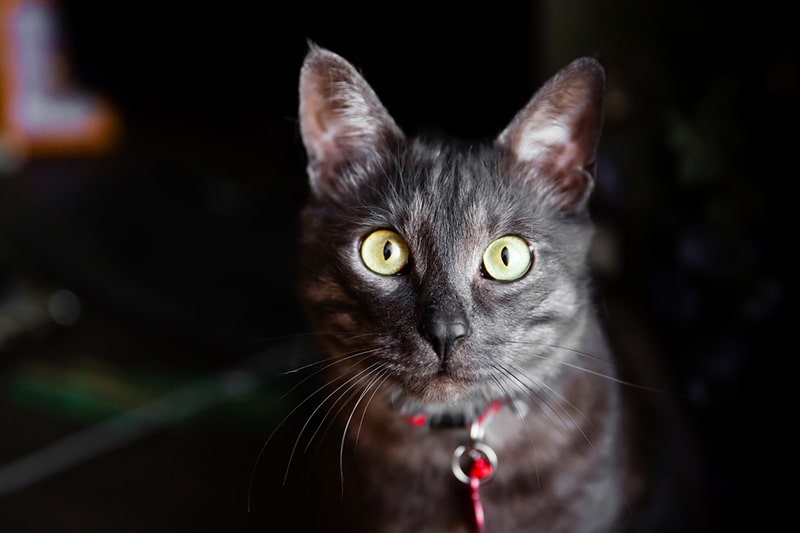How to Brush a Dog’s Teeth
Regular tooth brushing along with at-home checks and dental cleanings can help your dog have a bright, healthy smile and avoid issues like periodontal disease.
Cat parents can surely recognize those coughing and retching sounds their cats make and know what comes next—a yucky hairball that needs to be cleaned up off the floor. It’s certainly not the most glamorous part of having a cat! While you can’t prevent hairballs from happening, there are ways to minimize them. See which hairball remedies might work for your feline friend.
Unfortunately, hairballs are part of life for most cats and cat parents. There’s even a National Hairball Awareness Day, which is the last Friday in April. (I have to admit I missed that celebration this year!)
While they can be pretty nasty, hairballs are actually the result of healthy grooming habits. Cats lick their fur to keep it clean, and those rough tongues capture loose hair, dander, and dirt, which then gets swallowed. Most of this hair goes right through your cat without a hitch, but sometimes it accumulates in the stomach and develops into a hairball.
Eventually, cats cough up the hairball along with saliva and bile. Quite the pretty package, eh? Interestingly enough, hairballs are not actually ball-shaped. They’re thin and long since they are shaped by the esophagus as they come up and out the mouth.
Any kind of cat can get hairballs except maybe hairless breeds, like the Sphynx, who only have a light peach fuzz covering their bodies. Breeds with thick, full coats, like Persians and Maine Coons, are prone to get them more often because of their longer hair.

If you have a cat, you’re probably quite familiar with the hairball routine. Your cat’s back arches, the shoulders crunch down, and the hacking, retching, and gagging starts. This can go on for what seems like a long time if you’re listening in on those disturbing sounds, but typically it only takes a few seconds. And then suddenly, up comes the hairball. You can both breathe a sigh of relief—except you still have to clean it up.
It’s pretty normal for a cat to have a hairball every week or two, and they’re typically not a big deal. Even the clean up is usually pretty easy. In my house, it’s usually just a one paper towel kind of job. I’m always thankful when my cat chooses the tile floor rather than the plush carpet for her hairball moment.
Keep in mind that cats who are sick can have a cough, which could be mistaken for a hairball. Suppose your cat’s cough is persistent or you notice other symptoms, such as discharge from the eyes or nose. In that case, you should visit the veterinarian to find out if your cat has an illness like an upper respiratory infection that needs treating. You should also get your cat checked out if they are frequently vomiting with or without hairballs. This can be a sign of inflammatory bowel disease, cancer, or other sicknesses.
Hairballs can cause problems if they don’t come up and get stuck in the intestines. Concerned cat parents may wonder how to help their cat cough up a hairball. Unfortunately, a hairball blockage can be serious and may need to be removed through surgery. If you notice that your cat is especially lethargic or has repeated coughing and retching episodes that don’t produce a hairball, you should contact your veterinarian.
Do you know who you would call if your cat had a hairball blockage? Use our Vet Clinic Finder to locate a doctor near you.
While you can’t completely stop hairballs from happening, there are things you can do to help minimize them.
It’s true that cats are usually good at grooming themselves, but frequent brushing can help remove loose hairs, dander, and dirt that would otherwise get swallowed and cause a hairball. Plenty of cats enjoy being brushed, but there are some who don’t enjoy the experience. If that’s the case for your cat, these tips can help:
It might take some time, but hopefully, your cat will learn to love the extra attention during brush time.
Cats who groom excessively are likely to swallow more hair, which can cause more hairballs. If your cat is spending too much time grooming, try to interrupt those lengthy sessions with a game or a good cuddle. You might also want to give your cat a new toy or somehow liven up their day in case they’re grooming too much out of boredom.

A check-up won’t prevent hairballs, but it is a great time to talk to your veterinarian about your cat’s grooming habits and any concerns you have about hairballs. It also helps your veterinarian detect health issues early on when they can be easier to treat, and the prognosis can be better for your cat.
You should ask your veterinarian for hairball remedy recommendations that might work well for your cat. These are some of the options available:
These remedies may not be effective for all cats, but they might be worth trying depending on your situation.
The information presented in this article is for educational and informational purposes only and does not constitute or substitute for the advice of your veterinarian.